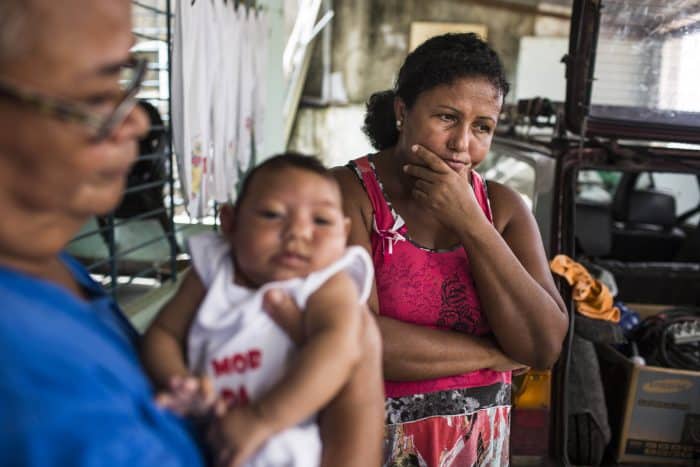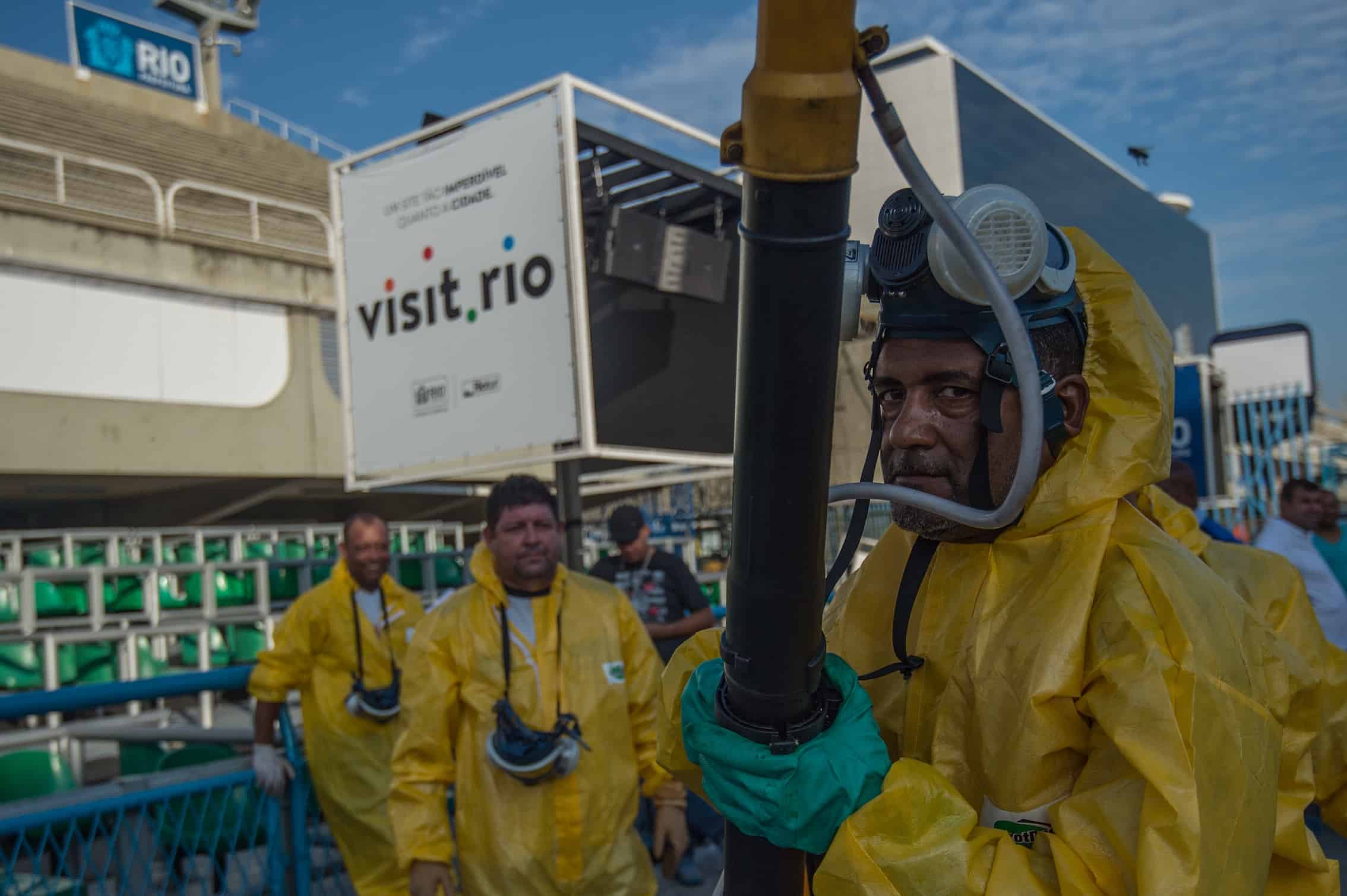For travelers to both events, warnings about Zika virus, which is spread to people through mosquitoes and has been found in Brazil and more than 20 surrounding countries, are causing alarm. The Centers for Disease Control is advising women who are pregnant or planning to become pregnant to consider postponing travel to areas impacted by the virus, which may be linked to microcephaly, a birth defect resulting in a small head.
Sports Traveler, a sports-centric tourism company based in Chicago, has been selling travel packages to the Olympics since May. Founder and owner Anbritt Stengele says that one or two clients have inquired, specifically, about Zika virus, but she is finding more often callers are asking questions about the company’s cancellation policy.
“We have several bookings that are multiple generations, grandparents, parents, kids, so I can see why people are concerned,” she says.
This week in Rio de Janeiro, more than 3,000 city workers have been spraying insecticide and searching for mosquitoes in preparation for the upcoming festivities.
Patrick Sandusky, spokesman for the United States Olympics Committee, issued this statement via email: “We are closely monitoring the situation through the CDC and have ongoing contact with the International Olympic Committee, the organizing officials in Rio, the World Health Organization and infectious disease specialists with expertise in tropical diseases, including the Zika virus. Additionally, we’re taking steps to ensure that our delegation and those affiliated with Team USA are aware of the CDC’s recommendations regarding travel to Brazil.”
See also: Zika alert: Costa Rica increases surveillance of travelers entering the country
Infectious disease specialist Kyle Petersen spent years studying Zika virus as commanding officer of Naval Medical Research Unit 6 (NAMRU-6) in Lima, Peru. He oversaw a 300-member team that studied infectious diseases and developed vaccines, medicines, and strategies to detect and combat illnesses such as dengue fever, West Nile virus and yellow fever, all of which are in the flavivirus genus and are in the same family as Zika. His post ended in August 2015, and today the captain in the U.S. Navy Medical Corps serves as associate professor of medicine at Uniformed Services University of the Health Sciences in Bethesda, Maryland.
Petersen says this isn’t the first outbreak of Zika virus, which actually dates back to the 1940s in Uganda. While testing rhesus monkeys for yellow fever, researchers found a virus they didn’t recognize. They named it Zika for the forest in which it was found.
In 2007, Petersen says, Zika made its way to Yap, an island in the Federated States of Micronesia. This was the first time the virus was seen outside of Africa and Asia, and about 180 people had symptoms such as rashes, joint pain and conjunctivitis, according to the World Health Organization. Petersen says that scientists suspect that a castaway mosquito traveled to the island in a shipping container.

The mosquito causing the outbreak is the Aedes aegypti species, which Petersen says is one that is drawn to people, rather than nature. “It lives near a house and in flower pots, in tires, in garbage, in any small container that can collect water or make a nice place to lay its eggs. It is easy for them to get into an urban area and just spread all over the place,” he says.
Petersen said that women who are pregnant or considering getting pregnant should avoid traveling to countries associated with the Zika outbreak, including Brazil.
“We don’t know when you get infected when you’re pregnant. Is it in the first trimester, the second trimester or the third trimester? So there’s no way to say safely if you’re out of your first trimester, your baby’s home free, you’re not going to get ill,” he says.
For others, he says, the risk of Zika virus is a less serious concern.
“However, if you’re not pregnant I don’t think I would avoid going to Carnival or the Olympics for any reason whatsoever,” he says. He says the symptoms of Zika virus are usually fairly mild and can include joint pain, fever, a rash and red eyes, and the illness goes away in a few days. Petersen adds that the majority of people who get infected — estimated at more than 70 percent — experience no symptoms at all.
Petersen says that those traveling to Brazil and other areas where the virus has been reported should bring insect repellant with DEET or picaridin and put it on every day – and continue to reapply it throughout the day. “The Aedes mosquitoes are day biters, they feed from sun up to sundown, and so you really want to protect your self during that time period,” he says.
“I would say just bring lots of repellant and wear it,” Petersen says.
© 2016, The Washington Post






